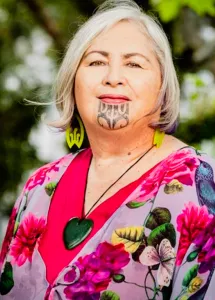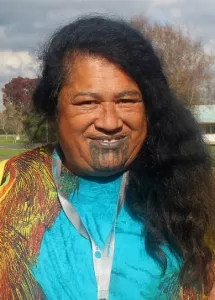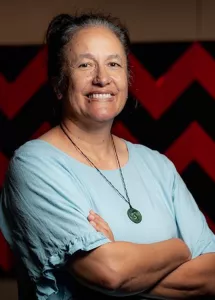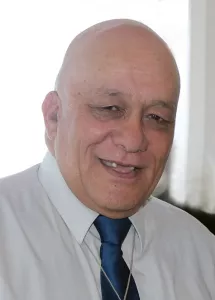Dr Tia Neha (PhD, MSc, MA, BA Hons, BSc, BEd)
Nō Ngāti Porou, Te Whānau ā Apanui, Ngāti Kahungunu, Ngā Puhi
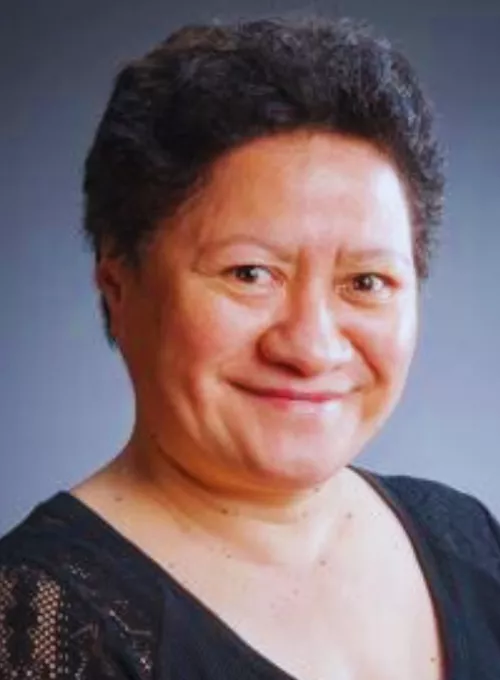
Dr Tia Neha is a Māori and Indigenous research psychologist whose research and advocacy have reshaped how Māori whānau, hapū, and iwi engage with psychology. With strong whakapapa connections to Ngāti Porou, Te Whānau ā Apanui, Ngāti Kahungunu and Ngā Puhi, her work integrates mātauranga Māori with Western psychological science to support Māori well-being, learning, and development as seen in her co-ordination and development of the first Māori Psychology major and course called Te Kura Mātai Hinengaro and Western Psychology.
Currently, Dr Neha is the first Senior Lecturer in Māori and Indigenous Psychology at Victoria University of Wellington, where she plays a pivotal role in expanding whānau-based research and psychological wellbeing. Her teaching and research focus on Māori and Indigenous psychology (whānau research methods), developmental psychology (whānau Māori and their children’s identity and learning), and criminal justice psychology (whānau trauma).
Dr Neha's list of academic achievements:
- Doctor of Philosophy (PhD), Psychology – University of Otago (2007–2015)
- Master of Arts (MA), Psychology – University of Canterbury (2002-2003)
- Bachelor of Honours (BHons in Arts) in Psychology (2001 -2001)
- Bachelor of Education (Bed) – (1991-1995)
- Masters in Science (MSc), Mathematics – University of Otago (1989-1990)
- Bachelor of Science (BSc), Mathematics – University of Otago (1985-1988)
The PhD dissertation that Dr Neha did, He Maumahara ki Ngā Kōrero a Ngā Whānau ki Te Waipounamu, explored Māori whānau narratives and their influence on children’s learning and school readiness. Her research integrates whānau based methodologies with western based psychology, giving voice to whānau experiences and reshaping mainstream psychological frameworks.
Her contributions to academia and Māori psychological health and wellbeing research include:
- The Role of Whānau in Māori Children’s Early Learning (2020) – Examining the link between whānau storytelling, cultural identity, and school readiness.
- Promoting identity development through memory narratives (2019);
- A Longitudinal Study: New Zealand Māori and Western Methods in Gleaning the Good Oil With Whānau (Māori Communities and Families) (2018).
- The ethics of allowing participants to be named in critical research with indigenous peoples in colonised settings: Examples from health research with Māori (2018).
- Let’s kōrero. The practice and functions of reminiscing among mothers and children in Māori families (2016).
- Whānau Resilience & Learning (Ongoing) – A longitudinal study on Māori family learning and development.
Dr Neha is deeply committed to embedding Māori values into psychology. She provides leadership and mentorship for emerging Māori psychologists while challenging systemic barriers within psychology and whānau health services, key roles that she has held:
- An interview with Dr Tia Neha Māori and Indigenous Psychology lecturer
- Māori lead for the first Bachelor of Psychological Science degree in New Zealand
- Researcher, Ngā Pae o te Māramatanga (New Zealand’s Māori Centre of Research Excellence) – Supporting Indigenous-led research.
- Health Research Council Project– Investigating the impact of social media on Māori youth well-being.
Her advocacy extends to shaping policy and practice, ensuring Māori voices influence whānau psychological health, child development, and forensic psychology. Some of her achievements include:
- New Zealand Psychological Society Karahipi Tumuaki President’s Scholarship (2012–2013) – Honoured for her pioneering research in Māori-centred psychology.
- G.V. Goddard Early Career Award (2020) – Recognised for outstanding contributions to applied psychology and kaupapa Māori research.
- Health Research Council Grant (2020–2024) – Leading groundbreaking research on Māori youth well-being and the impact of digital media.
- Fulbright Recipient (2012-2012)
Dr Tia Neha is shaping the future of Māori psychology through research, mentorship, and ensuring kaupapa Māori remains central to a strengths-based approach within Māori and Indigenous, developmental, criminal justice psychology. Her advocacy strengthens access to culturally safe services, embedding Māori knowledge within mainstream psychology and creating lasting change for future generations.
Dr Neha’s work continues to inspire the next generation of Māori psychologists, ensuring kaupapa Māori remains at the heart of psychological health and wellbeing research and practice, ensuring whānau knowledge systems are spotlighted and front and centre of her mahi.
"Understanding Māori psychology is not just about research—it’s about whānau, connection, and ensuring our tamariki grow up in a world where their identity is celebrated." – Dr Tia Neha
Links:
Google Scholar – Tia Neha Publications
University of Otago – Study Psychology – Student Profiles – Tia Neha
Doctoral Thesis Abstract. He maumahara ki nga korero a nga whanau ki Te Waipounamu: Family recollections and social contributions to Maori children's learning in the South Island, New Zealand
University of Otago, Psychology, Graduate Student Tia Neha Academia
Scoop Independent News: Psychologists Prepared To Manage COVID-19 Threats To NZ Society’s Well-being, 2 September 2020
Frequent Use of Baby Food Pouches in Infants and Young Children and Associations with Energy Intake and BMI: An Observational Study 1 September 2024 Nutrients 2024, 16(18), Journal article.
Journal article: A qualitative exploration of Māori cultural embeddedness 1 Jan 2022
Aging in New Zealand: Ka haere ki te ao pakeketanga The Gerontologist, Volume 60, Issue 5, August 2020, Pages 812–820
Neha, T., Reese, E., Schaughency, E., & Taumoepeau, M. (2020). The role of whānau (New Zealand Māori families) for Māori children’s early learning. Developmental Psychology, 56(8), 1518–1531.
The role of Whanau (New Zealand Maori families) for Maori children's early learning. Abstract Developmental Psychology, 56(8), 1518–1531 1 Aug 2020
11 April 2025
